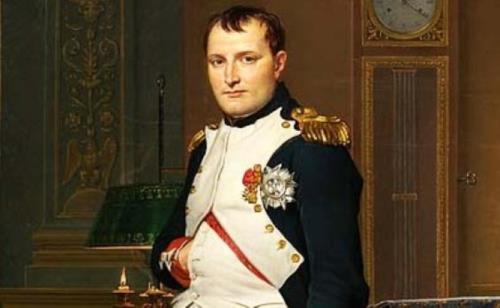Napoleon Bonaparte, one of history’s most enigmatic figures, rose from humble origins to become a dominant force in European politics and warfare during the early 19th century. His meteoric rise to power, marked by military conquests and sweeping reforms, continues to fascinate scholars and enthusiasts alike. In this blog, we delve into the captivating story of how Napoleon conquered Europe, examining the complex legacy of this iconic figure and exploring the debate surrounding his characterization as a hero or villain.
Born on the island of Corsica in 1769, Napoleon Bonaparte emerged as a formidable figure in the tumultuous landscape of post-revolutionary France. His military prowess and ambition propelled him to prominence, and he quickly ascended through the ranks of the French army during the revolutionary wars of the late 18th century. Through a combination of strategic brilliance and political manoeuvring, Napoleon seized power in a coup d’état in 1799, establishing himself as First Consul of France and later declaring himself Emperor in 1804.
With the establishment of the Napoleonic Empire, Napoleon embarked on a series of ambitious military campaigns aimed at expanding French influence and solidifying his grip on power. From the battlefields of Italy to the shores of Egypt and the heart of Europe, Napoleon’s armies swept across the continent, defeating formidable foes and conquering vast territories. His military genius and innovative tactics, such as the use of massed artillery and rapid troop movements, enabled him to achieve remarkable victories against superior forces.
While Napoleon’s military conquests brought him immense power and prestige, his reign was not without controversy and contradiction. On one hand, he implemented sweeping reforms that modernized France’s legal system, infrastructure, and education, earning him praise as a visionary leader and enlightened despot. On the other hand, his authoritarian rule and expansionist ambitions sparked opposition and resistance both at home and abroad, leading to widespread conflict and suffering.
The question of whether Napoleon was a hero or villain remains a subject of intense debate among historians and scholars. Supporters argue that his achievements, such as the Napoleonic Code and the spread of revolutionary ideals, justify his actions and portray him as a visionary leader who transformed Europe for the better. Critics, however, point to his autocratic tendencies, disregard for human life, and destabilizing impact on the continent as evidence of his villainous nature.
Despite his military prowess and political acumen, Napoleon’s ambitions ultimately led to his downfall. Defeated in the gruelling campaigns of the Napoleonic Wars and exiled to the remote island of Saint Helena, he spent his final years in isolation, reflecting on his tumultuous legacy and enduring impact on history. Yet, even in defeat, Napoleon’s legacy loomed large, influencing subsequent generations of leaders and shaping the course of European history for decades to come.
In the annals of history, Napoleon Bonaparte remains a towering figure whose legacy continues to captivate and inspire. Whether viewed as a hero or villain, his impact on the world cannot be denied, and his complex character serves as a testament to the complexities of power, ambition, and human nature. As we reflect on the rise and reign of Napoleon, we are reminded of the enduring lessons and enduring controversies that define his remarkable life and legacy.























